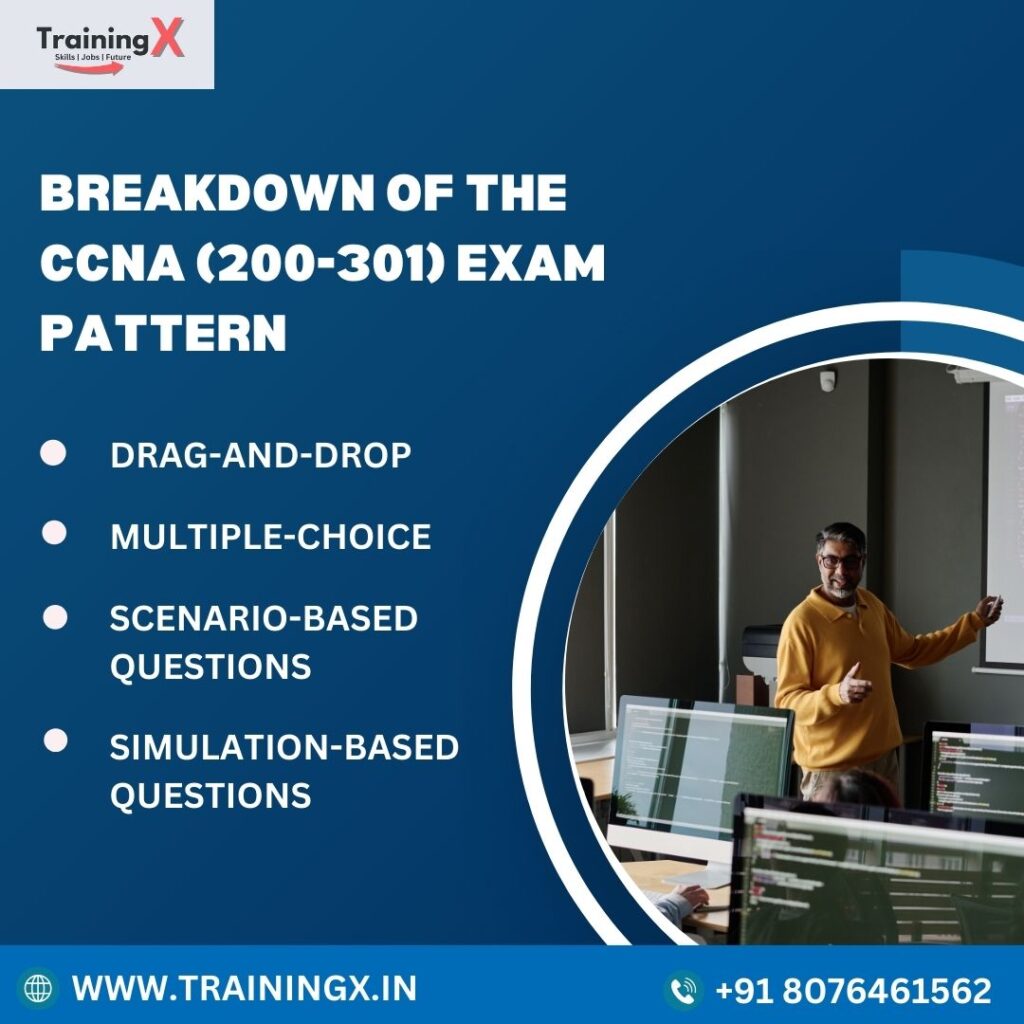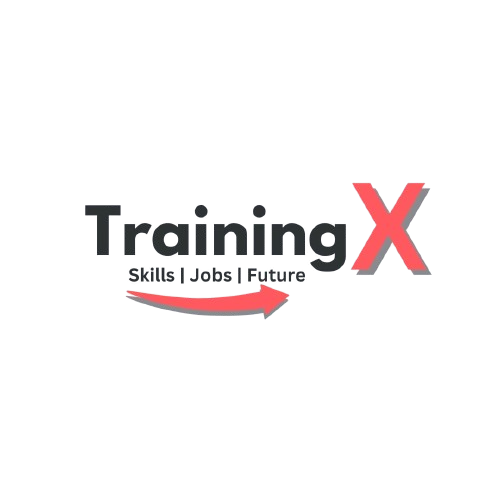Are you dreaming of a successful networking career? First, let’s understand what it is. A networking career involves designing, managing, and maintaining computer networks that connect devices, systems, and people. Networking professionals ensure smooth communication between computers, servers, and cloud environments in businesses and data centers. Now that you know this, start with CCNA! The CCNA (200-301) exam is your gateway to networking, and understanding its exam pattern is crucial for passing with confidence.
Understanding Cisco’s Certification Structure and the Role of CCNA in IT Networking
Cisco’s certification structure includes multiple levels, with CCNA (200-301) as the foundational certification for IT networking. It covers networking fundamentals, security, automation, and IP services. CCNA plays a crucial role in IT by equipping professionals with essential skills to configure, manage, and troubleshoot networks, making it a key stepping stone for a successful networking career.
CCNA Evolution: Major Updates and Transformations Over the Years
Before 2020, Cisco offered multiple CCNA certifications, each focusing on different networking domains. However, with the CCNA 200-301 update, Cisco merged all these specialized tracks into a single, comprehensive certification to better reflect the evolving IT landscape.
1. What Were the Previous CCNA Tracks?
Before CCNA 200-301, Cisco had various specialized CCNA certifications, each focusing on a different area:
- CCNA Routing and Switching (R&S) – Core networking skills (IP routing, switching, WAN, subnetting, VLANs).
- CCNA Security – Network security, firewall configuration, threat mitigation.
- CCNA Wireless – Wireless LAN (WLAN) technologies, configuring Cisco wireless devices.
- CCNA Voice – VoIP (Voice over IP), Cisco IP telephony concepts.
- CCNA Data Center – Networking concepts specific to data centers, virtualization, and storage networking.
- CCNA Cloud – Cloud networking basics, Cisco cloud solutions.
- CCNA Service Provider – Configuring large-scale networks for ISPs.
- CCNA Collaboration – Unified communications, voice, and video solutions.
- CCNA Industrial – Networking for industrial environments (IoT, automation).
Before 2020, Cisco offered multiple CCNA certifications, each focusing on different networking domains. But after February 24, 2020, Cisco revamped its certification program by consolidating all CCNA tracks into a single, unified CCNA (200-301) certification.
Breakdown of the CCNA (200-301) Exam Pattern

1. Types of Questions
The CCNA (200-301) exam pattern includes the following types of questions:
- Multiple-choice (MCQs): Tests theoretical knowledge and problem-solving abilities.
- Drag-and-drop: Requires matching correct concepts.
- Simulation-based questions: Assess practical networking skills.
- Scenario-based questions: Evaluate real-world problem-solving capabilities.
2. Marking Scheme and Passing Criteria
Cisco does not disclose the exact passing score, but it typically ranges between 800-850 out of 1000. The weightage of each question varies, and partial marking is possible for multiple-response questions
3. Exam Duration and Time Management
Candidates have 120 minutes to complete 100 questions. Efficient time management ensures all questions are answered within the given time. Proper allocation helps maintain a steady pace, prevents last-minute rushing, and increases the chances of scoring high.
Core Domains and Topics Covered in CCNA
Network Fundamentals and Architectures
- Understanding networking models (OSI & TCP/IP)
- IP addressing and subnetting
- VLANs and switching concepts
- Wireless networking principles
Security, Automation, and Network Management
- Network security principles
- Firewalls, VPNs, and access control lists (ACLs)
- Basics of network automation and scripting
- Network troubleshooting methodologies
Advanced Routing, Switching, and Wireless Concepts
- Dynamic routing protocols (OSPF, EIGRP, BGP)
- LAN and WAN technologies
- Wireless configurations and management
what to expect in practical lab and simulation-based questions
1. What to Expect in Simulation-Based Questions?
Expect real-world networking scenarios testing configuration, troubleshooting, and command execution using Cisco simulators like Packet Tracer and GNS3.
2. Packet Tracer, GNS3, and Other Lab Tools
Packet Tracer, GNS3, and other lab tools provide hands-on practice for CCNA, helping learners master networking concepts and real-world troubleshooting.
3. Hands-on Practice Strategies for Real-World Scenarios
Practicing real-world scenarios enhances problem-solving skills. Candidates should focus on configuring routers, switches, and firewalls, as well as troubleshooting network issues.
How to Prepare for the CCNA Exam Effectively
Study Resources: Books, Courses, and Online Platforms
Recommended study materials from TrainingX include:
- TrainingX Course Materials (Comprehensive CCNA Study Guide)
- Expert-Led Online Courses (TrainingX Exclusive Programs)
- Hands-on Practice Labs & Discussion Forums (TrainingX Labs)
Daily Study Routine and Practice Tests
A structured study plan with TrainingX should include:
- 2-3 hours of daily study covering theory, hands-on labs, and real-world scenarios.
- 2. Weekly practice tests to assess progress and boost confidence.
- 3. Reviewing incorrect answers to identify weak areas and improve understanding.
Troubleshooting Techniques for Complex Topics
Troubleshooting is a key aspect of the CCNA (200-301) exam pattern. Candidates must practice:
- Diagnosing connectivity issues
- Configuring routing protocols
- Securing networks against threats
Join study groups or forums
Join TrainingX study groups in Noida to boost your CCNA preparation. Discuss topics, clear doubts, and gain insights from peers. Group learning provides real-world scenarios, motivation, and better understanding, ensuring you’re exam-ready with confidence.
Effective Time Management and Exam Strategies
Handling Multiple-Choice vs. Practical Questions
Candidates should allocate more time to simulation-based questions as they require more effort. Answering straightforward MCQs first can help in managing time effectively.
Managing Exam Stress and Boosting Confidence
To reduce stress:
- Take mock tests to simulate exam conditions
- Use relaxation techniques (deep breathing, meditation)
- Avoid last-minute cramming
Common Mistakes to Avoid in the Exam
- Not practicing enough labs
- Ignoring network automation topics
- Spending too much time on difficult questions
- Not reviewing answers before submission
FAQ: CCNA (200-301) Exam
Q1. What jobs can I get with a CCNA certification?
Ans. The CCNA certification qualifies you for roles such as:
- Network Engineer
- Network Administrator
- IT Support Specialist
- Systems Engineer
Q2.Is the CCNA(200-301) Exam for beginners?
Ans. Yes, the CCNA (200-301) exam is designed for beginners, covering fundamental networking concepts. However, basic IT knowledge helps in preparation.
Q3. Can I take the CCNA exam online?
Ans. Yes, you can take the CCNA (200-301) exam online through Pearson VUE’s online proctored option, provided you meet the system requirements.
Determination
Ace the CCNA (200-301) exam with TrainingX Noida! Get expert guidance, hands-on labs, and real-world networking experience. Boost your career with industry-leading training and crack the CCNA exam with confidence. Enroll now and start your journey to success!
